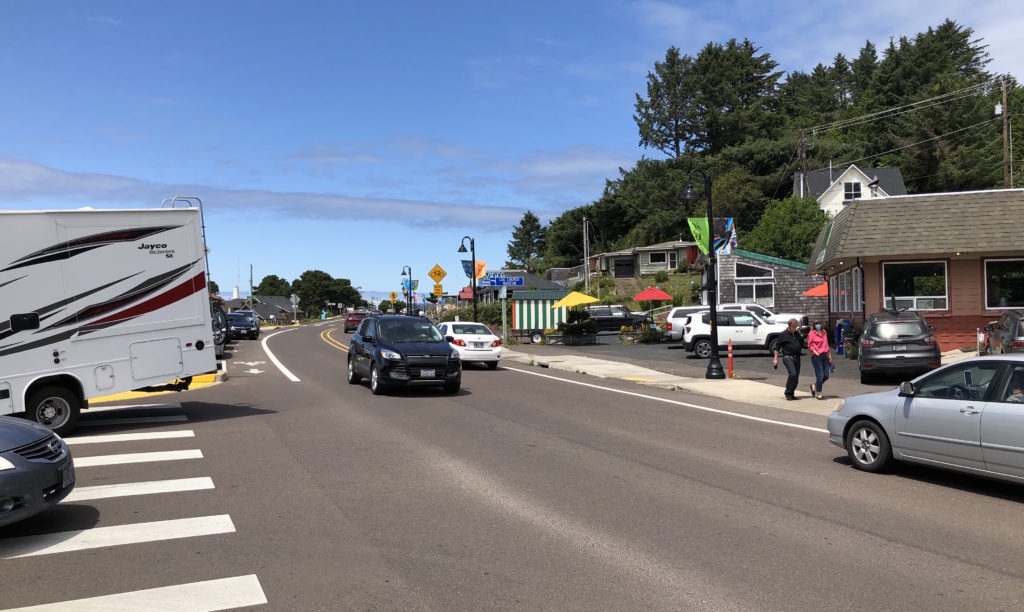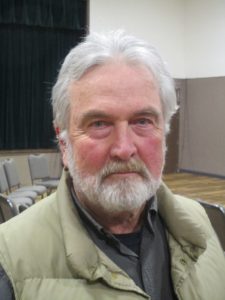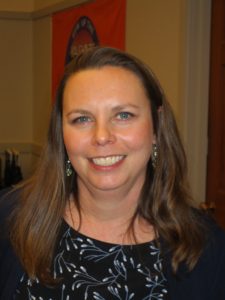
By QUINTON SMITH/YachatsNews.com
The city of Yachats may be better off financially than expected from the repercussions of the coronavirus pandemic, city manager Shannon Beaucaire told the Finance Committee last week.
But when and how the community gets a financial health report may be a bit more problematic.
The city’s Finance Committee, which is made up of representatives of the City Council and various commissions, met online for the first time in three months last Wednesday.
While it was getting pages of various finances, John Purcell, who is transitioning off the committee as a representative from the Parks & Commons Commission, asked if the group – and the community – could get a simple narrative update with basic figures on how the city was doing financially.

“Most people in this city will not look at or understand a financial report like this,” said Purcell, pointing to pages of detailed month-to-month spending that the committee was given. “It’s not what the community is asking for. What they are asking is ‘How are we doing?’”
Purcell was supported by Jacqueline Danos, his wife and a member of the Planning Commission, Craig Berdie from Parks & Commons, and Councilor Jim Tooke.
Purcell, Danos and Berdie said the community is rife with rumors — during what is expected to be heated races for two council positions and mayor – that the city is in trouble financially.
“… it’s important community information,” Berdie said.
Beaucaire said she is working on that information and was trying to get current and exact numbers, “but generally speaking it doesn’t look as we’ve been impacted as much as we thought.”
Beaucaire was referring to lodging taxes the city collects from motels and vacation rentals, which provide 61 percent of the city budget, and a 5 percent sales tax on prepared food and beverages which is used to pay debt on the wastewater treatment plant. The numbers are big — more than $1 million in lodging taxes and more than $400,000 in food/beverage taxes in fiscal 2018-19.
Those taxes are collected every three months, and businesses have until the last day of the following month to pay them. That means, for example, that the last day to pay taxes for the busy summer quarter that ends Sept. 30 is Oct. 30. And most large businesses wait until the last day of the last month to pay, the committee was told.
The city budget, which was approved in late June, predicted a 50 percent decline in lodging and food/beverage taxes for the 2020-21 fiscal year. That was based on the sharp drop in tourism in the spring and uncertainty of summer and fall travel due to the coronavirus pandemic. The budget mostly maintained current spending levels and drew from the city’s healthy reserves to cover the expected decrease in revenue.

Beaucaire said the financial report was coming “in a couple of weeks, but it is coming.”
“I want to provide quality material to the community,” she said.
That’s fine, said Purcell, Danos and Tooke, but the information needs to be a simple, straightforward view of the city’s financial picture. That’s not always the case with understanding city finances, they said.
“For the average person this kind of information is hard to understand and comprehend,” Tooke said of the 18-page report the committee was given Wednesday. “They need to be … given a simple report. Are we losing or making money? Are we ahead or are we behind?”
Mayor John Moore said the committee and community would get such a report in late October. In the meantime, he said, it’s plain to see that motel parking lots are full and restaurants are busy.
“If we open our eyes and look around, then common sense says we should be doing OK,” said Moore, adding that he would try to address concerns in his monthly message in the city newsletter.
That frustrated Purcell even more.
“We need to empathize with people who are concerned,” he said, and also tamp down rumors as the Nov. 3 election approaches. “I see parking lots full but I don’t know what that means.”
On Thursday, Moore wrote in the newsletter that his talks with motel managers had them running at nearly the same occupancy rates for this July, August and September as last year “and if that trend continues we should end up with between $400,000 to $500,000 over our projected revenues for this fiscal year.”
“Rest assured, we’re in good shape financially,” Moore wrote.


